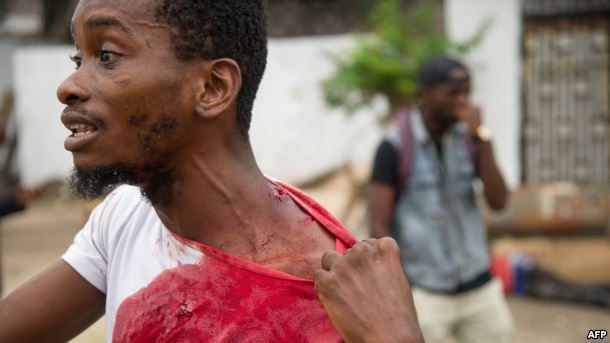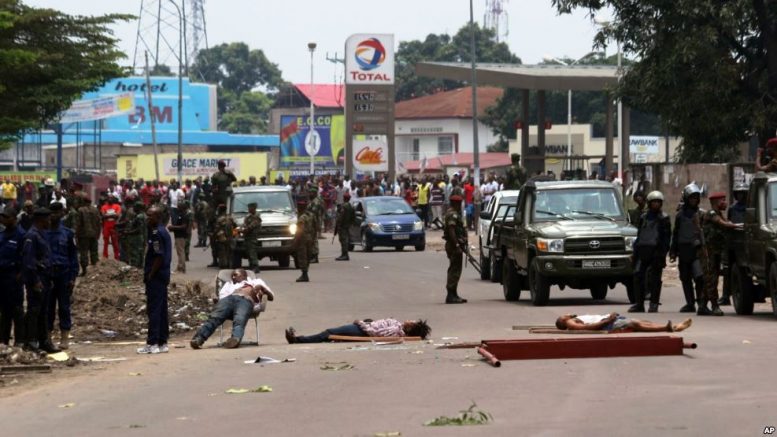A human rights group says at least 44 people were killed in the Democratic Republic of Congo over two days of violence triggered by protests against President Joseph Kabila.
Human Rights Watch says it has received “credible reports” that security forces have killed at least 37 people since the protests began Monday.
Ida Sawyer, the group’s DRC researcher, told VOA that most were killed when security forces opened fire on crowds of protesters. She said others were killed when armed men burned down the headquarters of several opposition parties.
Death toll
Human Rights Watch says it also received credible reports that protesters have killed at least six police officers and a supporter of Kabila’s party, as well as looted several shops and police stations.
Government officials have put the overall death toll at 17, including three policemen and 14 civilians.
The opposition accuses Kabila of trying to extend his time in office unconstitutionally by delaying elections. Supporters of the president say officials need more time to organize elections.
Kabila’s second term is due to expire on December 19.
The violence began Monday morning as police prevented protesters from gathering in the capital, Kinshasa. Witnesses say some protesters threw stones and set tires and vehicles on fire, while police fired tear gas and live rounds at the demonstrators.

A man shows his injuries on September 20, 2016, near the offices of the main opposition party, Union for Democracy and Social Progress in the Democratic Republic of Congo.
Lambert Mende, a spokesman for the Congolese government, told VOA there was a criminal element within the ranks of the protesters that only wanted to cause trouble.
“Everybody has the right to demonstrate,” Mende said. “Nobody has the right to kill and loot and destroy property. They came just to loot and destroy and kill.”
‘Uprising’
He said the demonstration wasn’t a protest, referring to it instead as an “uprising.” He said that some of those participating were paid or provided with drugs to be there.
Monday marked the day that Congo’s electoral process should have kicked off ahead of November polls. But the electoral commission now says the polls should be delayed until next year to give it more time to compile a new voter list.
The United States said it is disappointed that Congo did not announce an election calendar on Monday and said it is deeply alarmed by reports of violence. It threatened to impose additional sanctions on Congolese officials it deems responsible for violence and repression.
State Department spokesman John Kirby also said the United States is “outraged and deeply disturbed by the physical obstruction and verbal aggression aimed at U.S. Special Envoy to the Great Lakes Region of Africa Tom Perriello while he was departing from Kinshasa airport on September 18.”
Kirby said Perriello was in Kinshasa to encourage dialogue on the electoral process and said before he left he was “blocked and verbally threatened” in an area of Kinshasa’s airport that is tightly secured by Congolese authorities.
President Kabila took power in 2001 after his father was assassinated. He has since won two elections.
A smaller Congolese opposition group has been meeting with the government in an attempt to organize a schedule for elections, but the main opposition has refused to participate in the talks.
William Clowes contributed to this report from Kinshasa, James Butty from Washington I VOA

